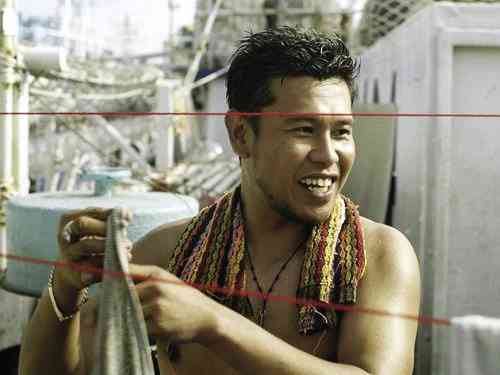Their motivations may be as diverse as their movies, but these filmmakers are united by a common goal: To tell the Filipino story to the rest of the world.
Four Filipino films are competing for top prizes in the Silver Screen Awards of the 27th Singapore International Film Festival, ongoing until
Dec. 4. These are: Jet Leyco’s full-length feature, “Town in a Lake”; and the short films, Rina B. Tsou’s “Arnie,” Che Tagyamon’s “Grandma Loleng” and PR Patindol’s “Hilom (Still).”
The tilt “aims to create awareness of the rich filmmaking talents throughout Asia and Southeast Asia.”
Leyco sees his participation in the Singapore fest as “an opportunity to discuss” his work “with an audience, other filmmakers and anyone interested to take part in a discourse.”
Leyco regards the screenings as “a conversation between the filmmaker and the viewer—a dialogue that adds to the experience of cinema for it allows everyone to dig deeper into the film’s context and the filmmaker’s process in general.”
Tagyamon thinks attending the fest will allow her to widen her “knowledge about filmmaking.”
“It’s my first time to join an international film fest,” she admits. “I will get to expose myself to the craft of filmmakers from our neighboring countries. We will get to talk about our shared struggles as filmmakers and, more importantly, discuss the problems confronting our respective countries.”
Tsou, who is Filipino-Taiwanese, relates that her short film is about a Filipino fisherman who is infatuated with a Taiwanese girl.
“They live in parallel worlds … but a mutual feeling of heartbreak unites them. It’s like the magical middle ground [that bridges the gap] between social classes,” Tsou says.
“Singapore is a place for travelers and migrants, a place of hope for people in need. That’s why we’re happy to screen our film there.”
Patindol, whose background is in cinematography, is excited to share his directorial debut with the rest of the globe. “To have our world premiere at the Singapore fest is an honor, as we become part of an event that celebrates our diversity and unity as a region.”
“Town in a Lake,” Leyco explains, tells the story of “a quaint village that is tainted by evil” and the murder of a schoolgirl.
“It happens anywhere in the world,” he notes. It sheds light on “a society that’s gone wrong”—with “the ideals it upholds and its concept of truth and crimes” somehow distorted.
On the other hand, Tagyamon’s “Lola Loleng” tackles the travails of comfort women—Filipinos who were treated as sex slaves by the Japanese army during World War II.
“There’s a parallel between our country and the main character who experiences memory loss,” Tagyamon points out. “As a nation, we also tend to forget important issues. Ours is a struggle of memory.”
Tagyamon feels that “to achieve just and lasting peace in the region … we should not bury issues like this. We have to openly discuss it, until justice is attained.”
Patindol describes “Hilom” as “extremely personal and distinctly Filipino.”
Tsou, for her part, believes that the story of “Arnie” is “universal.”
Since its inception in 1991, the Silver Screen Awards has been “charting the rise of Asian cinema … recognizing the talents of new and upcoming filmmakers—many of whom have become some of the most prominent directors of our time.”
